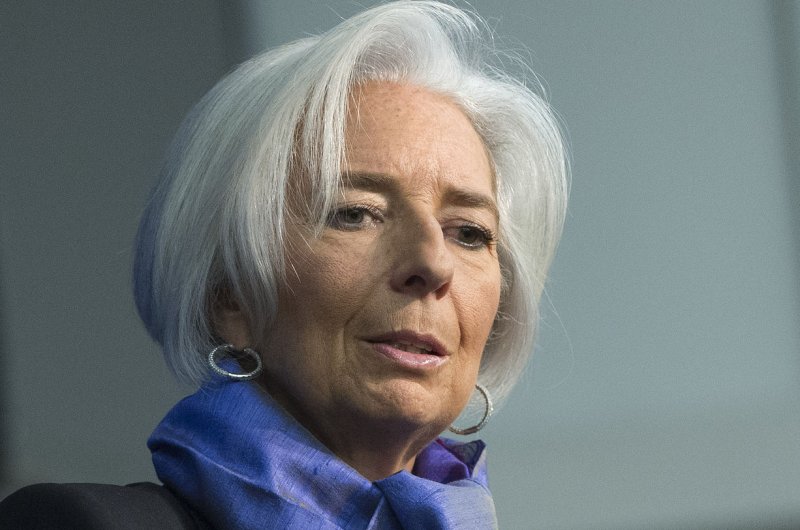IMF Managing Director Christine Lagarde says economic sluggishness will continue into 2016, dragging crude oil prices down in early Wednesday trading. File photo by Kevin Dietsch/UPI |
License Photo
NEW YORK, Dec. 30 (UPI) -- Crude oil prices retreated in Wednesday trading on sentiments of economic doubt from the International Monetary Fund director.
Christine Lagarde, the managing director of the IMF, told German newspaper Hadelsblatt the U.S. Federal Reserve decision earlier this month to raise interest rates for the first time in nearly a decade, as well as the prospects of a slowing Chinese economy, created headwinds for 2016.
"Global growth will be disappointing and uneven in 2016," she said.
Concerns about the health of the global economy are the counter-narrative to an energy sector awash in crude oil. Despite a recent draw, U.S. crude oil inventories are at historic highs in a sign that economic growth isn't enough to take on extra supplies, even as low energy prices act as a de facto form of economic stimulus.
Crude oil prices are in the midst of a volatile week as 2015 winds down, falling steeply Monday before rallying again on Tuesday. Brent crude was down about 1.8 percent in early Wednesday trading to $37.09 per barrel, moving back to near the level at which it started the week. West Texas Intermediate, the U.S. benchmark price for crude oil, lost a rare premium to Brent in early trading to drop 2.4 percent to $36.95 per barrel.
WTI held above Brent in previous sessions, in part in response to a U.S. decision to end a 40-year-old ban on domestic crude oil exports.
On the sector front, Saudi Arabia added to supply concerns by saying it would produce as much as demand warranted. Saudi Arabia, considered the leader of the Organization of Petroleum Exporting Countries, has defended a robust production stance, arguing more demand was expected from Asian economies.
Riyadh, however, offered a rare economic stimulus package as its economy feels the pressure from lower crude oil prices.















